#Sebastian Junger
Text


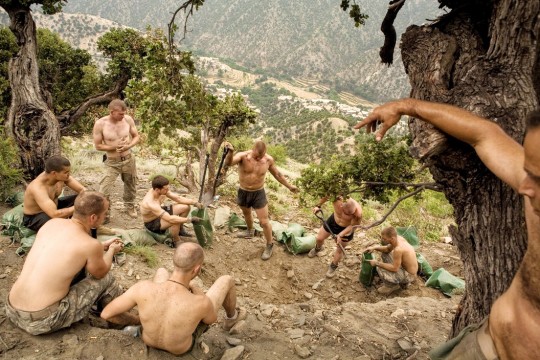


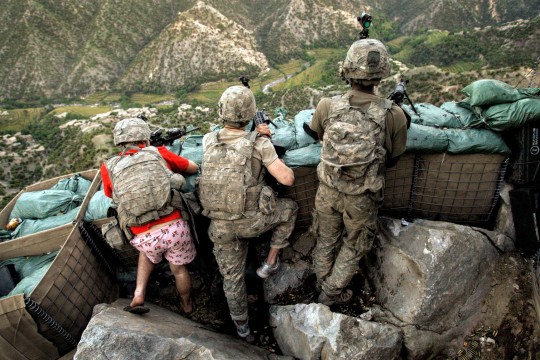


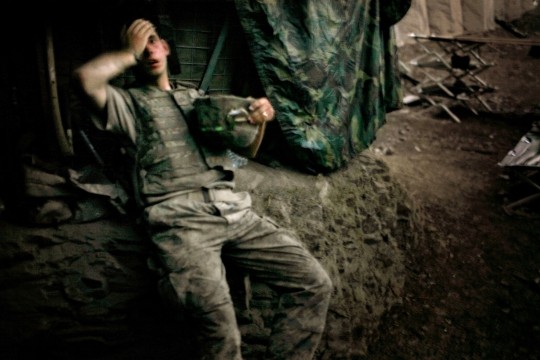
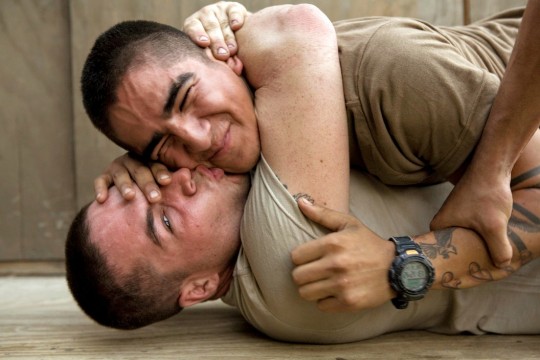
Restrepo (2010; documentary by Sebastian Junger and Tim Hetherington.)
#tim hetherington#photography#afghanistan war#journalism#war#sebastian junger#soldiers#film#2000s#men#veterans#people#movies#cinema#documentary#photos#us army#military#history#cinematography#afghanistan#restrepo#🎬#korengal valley 2007 2008
53 notes
·
View notes
Text
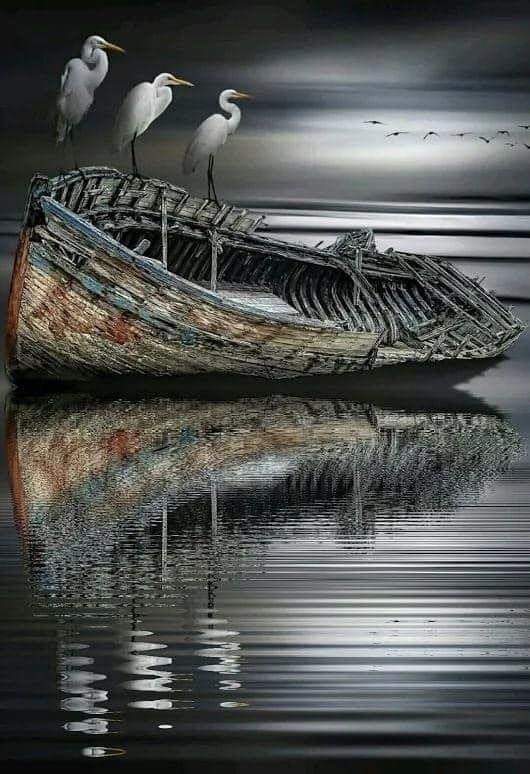
“How do men act on a sinking ship?
Do they hold each other?
Do they pass around the whisky?
Do they cry?”
By Sebastian Junger, The perfect storm
114 notes
·
View notes
Text
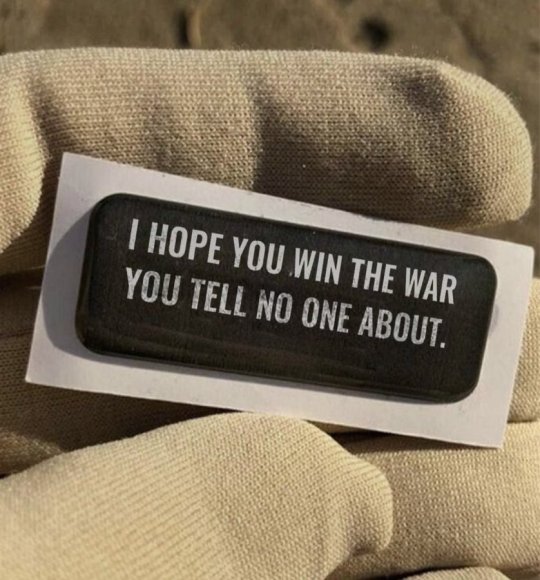
Today's veterans often come home to find that, although they're willing to die for their country, they're not sure how to live for it.
Sebastian Junger, Tribe: On Homecoming and Belonging
Dedicated to my fellow veterans on this Armed Forces Week.
May you win the war you brought home with you.
Dum spiro spero (while I breathe, I hope).
#junger#sebastian junger#quote#veterans#british army#PTSD#homecoming#belonging#soldier#sufering#war#purpose#healing#armed forces week 2023
102 notes
·
View notes
Text
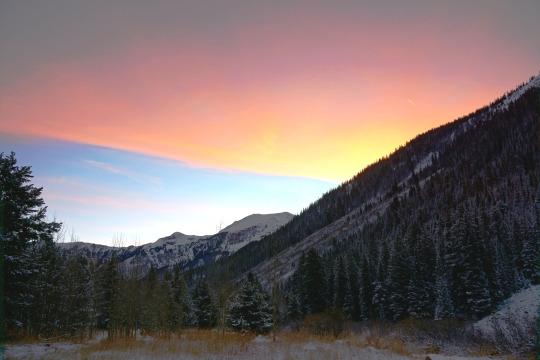
"Death isn't the end of life; it's like turning off a lamp because morning has arrived."
~Sebastian Junger
(Photo © dramoor 2015 Maroon Bells Wilderness Area, Colorado)
#sunrise#sky#Rocky Mountains#Maroon Bells#wilderness#morning#photography#photographers on tumblr#Colorado#travel#death is not the end of life#Sebastian Junger
13 notes
·
View notes
Photo
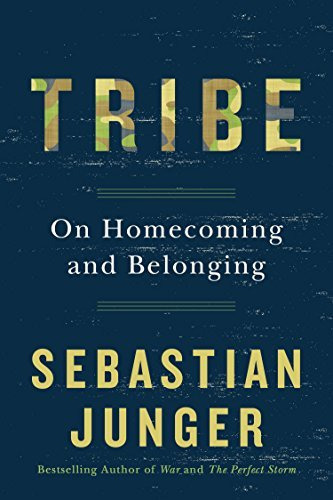
Emma Watson, (Goodreads Account)
—Tribe: On Homecoming and Belonging, Sebastian Junger (2016)
2 notes
·
View notes
Text
Near-death experience
What they found was that in the 30 seconds before and after the moment of death — and of course death isn't just confined to a single moment, it's a spectrum — there was a surge in brain activity related to dreaming and memories and all kinds of other things.
So one of the things that might happen when people die is that they experience this flood of sensations from their life. Why would they? Who knows? It's hard to come up with this Darwinian reason for why this might be adaptive when a person’s dying. It's not a question of survival and procreation, and Darwinism is not concerned with emotional comfort. It just doesn't matter in the Darwinian arithmetic, so it's hard to know what to make of it.
https://www.vox.com/the-gray-area/351128/the-science-of-near-death-experiences
0 notes
Text
Just a Question: Are You A Completionist? For Which Writers?
#bookworm#literature#book reviews#read read read#books#just a question#quirky#ask me anything#haruki murakami#ralph ellison#franz kafka#arthur c clarke#j m coetzee#sebastian junger
0 notes
Text
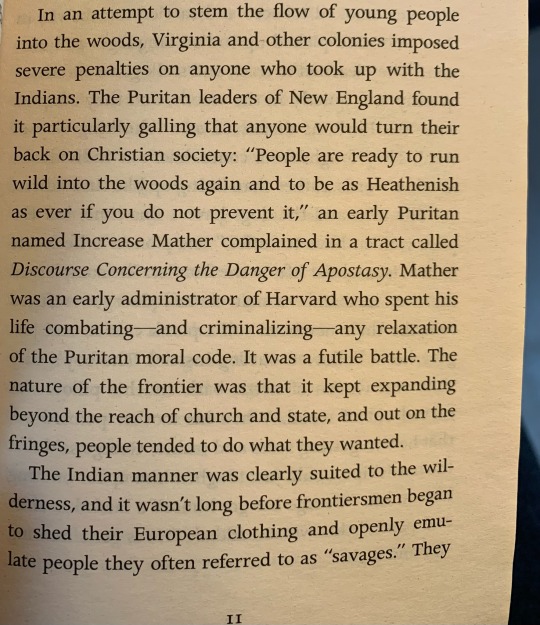
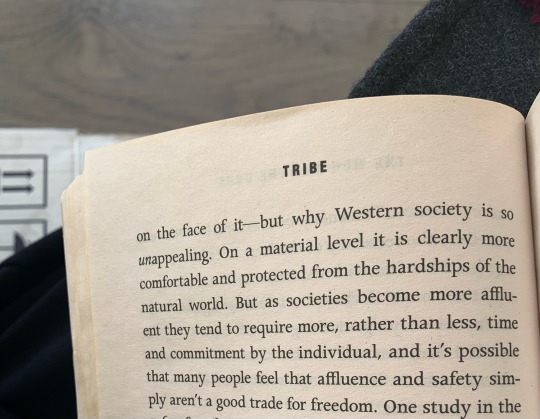
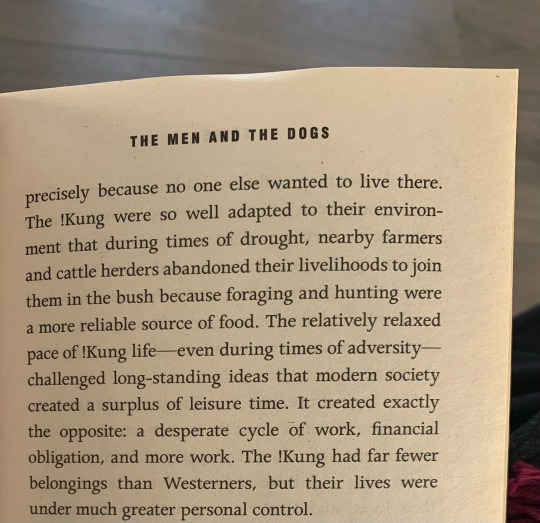
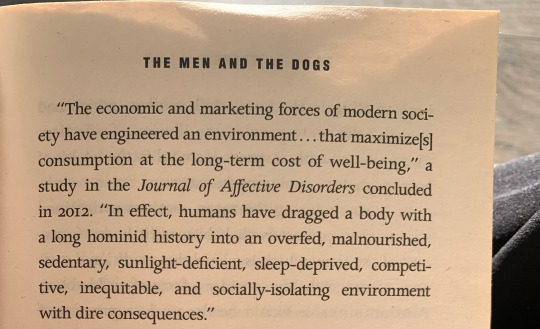
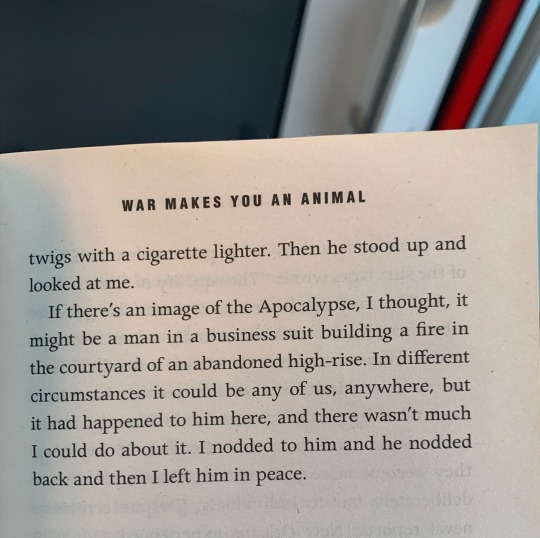
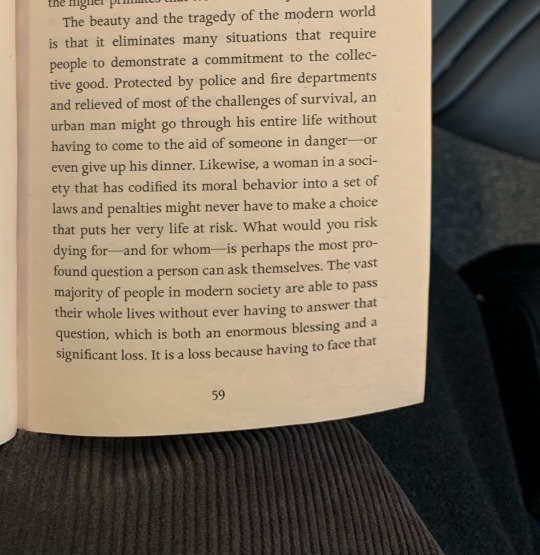

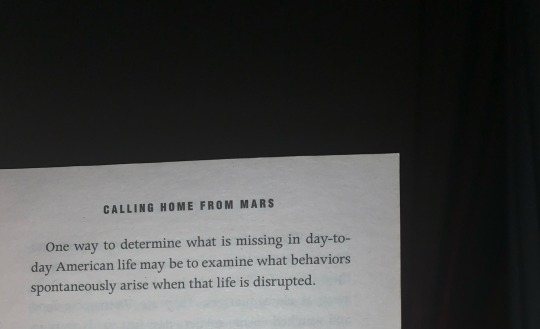
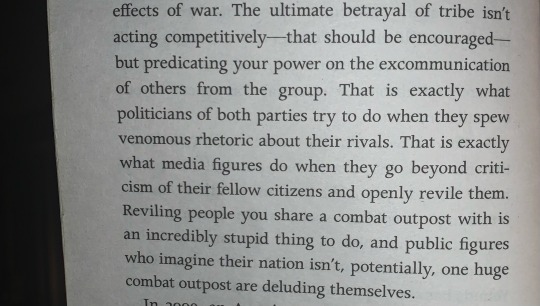
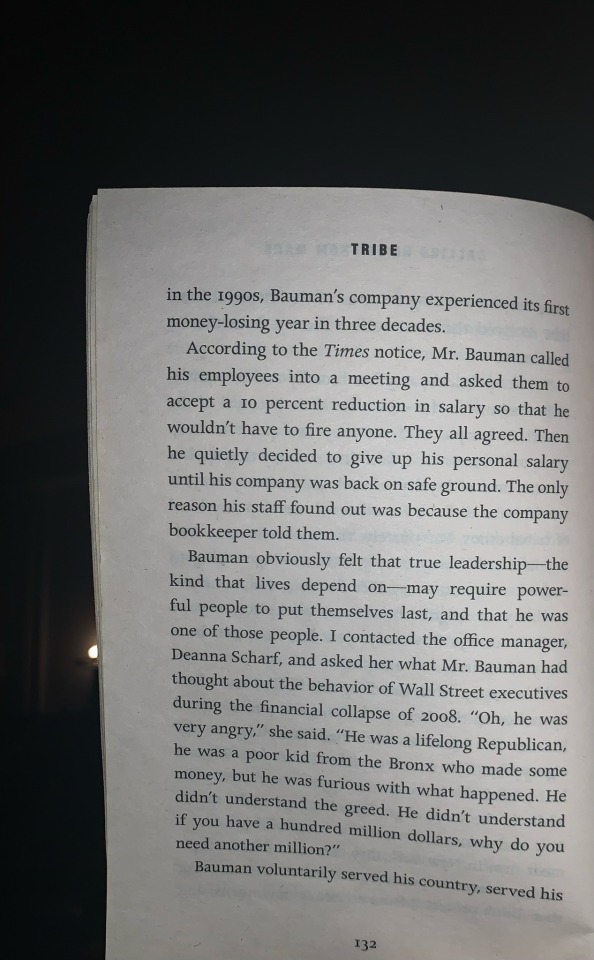
excerpten uit Tribe van Sebastian Junger
ja lezen
0 notes
Text
Tribe: On Homecoming and Belonging
Sebastian Junger
Publisher: Twelve
Genre: nonfiction, psychology
Year: 2016

I just finished Tribe: On Homecoming and Belonging by Sebastian Junger, a fascinating look on how the construction of western society is destructive to the human conscious through PTSD. Junger articulated that the way we in the west have constructed our society leaves us bereft of the human interaction that humanity has continuously had up until the rise of the Industrial Revolution. The lack of community and of these intimate relationships, has had detrimental impacts on our society. He compares times throughout history: people living in London during the Blitz were overall happier and suffered less PTSD than those of surrounding villages who saw no attacks. Frontiersmen and women would abandon their colonies to live with the native peoples when they arrived in the US. American soldiers suffer more accounts and more severe PTSD than soldiers in places with much more violence and much higher casualty rates, and their symptoms only worsen when they get back stateside. Rape victims experience far more severe symptoms than veterans, but also appear to heal faster, and that is because soldiers experience their trauma alongside the closest moments of their lives: for the first time they are part of a tight knit community that western society deprives them of.
Overall, this fascinating read that definitely requires further extrapolation is marred by the author’s own inherent racism, classism, and imperialist tendencies. Even though, for all intents and purposes, the author is admitting that the way Native American society is superior to western society when it comes to mental health and community bonds, and yet the language he uses to describe these societies belies the white imperialist tradition from which he comes, and still clearly subscribes to, at least partly. His glorification of the military contradicts the very point he tries to make about nature of violence and the bonds of society.
This subject matter is so important and so very fascinating and Junger scratches the surface of something that I think is truly powerful, but he is so clearly the wrong person to discover it and the wrong voice to deliver it.
storygraph | bookshop.org | local houston
★★ traumatized stars
#book review#tribe: on homecoming and belonging#sebastian junger#nonfiction#psychology#political science#2 stars#disappointing#racist#sexist#such potential#featured#2016#twelve pub
0 notes
Video
Which Way Is the Front Line From Here? von Narciso Bianco
12 notes
·
View notes
Text
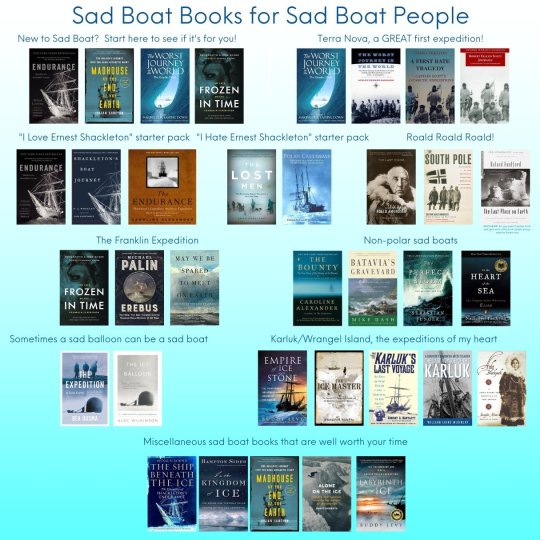
I guess it's time to start moving some content from twt over here! For those who don't know me, I'm a public librarian with a special interest in polar and nautical history, and I love nothing more than connecting readers with good books. I've managed to convert some friends to my way of thinking, and one of them coined the phrase "sad boat books" to describe the types of books that I'm always reading and recommending. Here is my first list of sad boat books-- I can personally vouch for all of them!
New to sad boat? Start here to see if it’s for you!
Endurance by Alfred Lansing
Madhouse at the End of the Earth by Julian Sancton
The Worst Journey in the World- The Graphic Novel Volume 1: Making Our Easting Down adapted by Sarah Airriess from the book by Apsley Cherry-Garrard
Frozen in Time: The Fate of the Franklin Expedition by Owen Beattie and John Geiger
Terra Nova, A GREAT first expedition!
The Worst Journey in the World- The Graphic Novel Volume 1: Making Our Easting Down adapted by Sarah Airriess from the book by Apsley Cherry-Garrard
The Worst Journey in the World by Apsley Cherry-Garrard
A First Rate Tragedy by Diana Preston
Robert Falcon Scott Journals- Captain Scott’s Last Expedition by Robert Falcon Scott
“I Love Ernest Shackleton” starter pack
Endurance by Alfred Lansing
Shackleton’s Boat Journey by Frank Worsley
The Endurance by Caroline Alexander
“I Hate Ernest Shackleton” starter pack
The Lost Men by Kelly Tyler-Lewis
Polar Castaways by Richard McElrea and David Harrowfield
Roald Roald Roald!
The Last Viking: The Life of Roald Amundsen by Stephen Bown
The South Pole by Roald Amundsen
The Last Place on Earth by Roland Huntford*
*DISCLAIMER: this guy hates Captain Scott and gets most of the Scott details wrong, read for Roald only!
The Franklin Expedition
Frozen in Time: The Fate of the Franklin Expedition by Owen Beattie and John Geiger
Erebus by Michael Palin
May We Be Spared to Meet on Earth: Letters of the Lost Franklin Expedition edited by Russell A. Potter, Regina Koellner, Peter Carney, and Mary Williamson
Non-polar sad boats
The Bounty by Caroline Alexander
Batavia’s Graveyard by Mike Dash
The Perfect Storm by Sebastian Junger
In The Heart of the Sea by Nathaniel Philbrick
Sometimes a sad balloon can be a sad boat
The Expedition by Bea Uusma
The Ice Balloon by Alec Wilkinson
Karluk/Wrangel Island, the expeditions of my heart
Empire of Ice and Stone: The Disastrous and Heroic Voyage of the Karluk by Buddy Levy
The Ice Master by Jennifer Niven
The Karluk’s Last Voyage by Robert A. Bartlett
The Last Voyage of the Karluk: A Survivor’s Memoir of Arctic Disaster by William Laird McKinlay
Ada Blackjack: A True Story of Survival in the Arctic by Jennifer Niven
Miscellaneous sad boat books that are well worth your time
The Ship Beneath the Ice: The Discovery of Shackleton’s Endurance by Mensun Bound
In The Kingdom of Ice: The Grand and Terrible Polar Voyage of the USS Jeannette by Hampton Sides
Madhouse at the End of the Earth by Julian Sancton
Alone on the Ice: The Greatest Survival Story in the History of Exploration by David Roberts
Labyrinth of Ice: The Triumphant and Tragic Greely Polar Expedition by Buddy Levy
If you read and enjoy any of these, please let me know!
2K notes
·
View notes
Text
Masterpost of interests/about me
Hey! I’m Nate or Cowboy, either are fine 🤠
I’m 20 and use he/him pronouns
I’m an (aspiring) actor/voice actor/author
I’m from the U.S, EST timezone
I’m mostly active here but answer messages better on Instagram (@/70z.cowboy) or Discord (@/70z.cowboy) that being said, feel free to message me here or send asks n stuff!
My tag is the first one listed (#70zcowboyposting)
⭐️ means current fixations
Movies/TV/Directors/Actors:
•The Thing (1982)
•Twister (1996)
•Reanimator (1985)
•Jaws (1975)
•Kingdom of Heaven (2005)
•HBO’s Chernobyl
•Peaky Blinders ⭐️
• The A Team (TV)
• Tarantino Films
• Safdie Brothers
• Brazil (1985)
•Vincent Price
• Jeffrey Combs
•Anton Lapenko/Внутри Лапенко
• Michael Emerson
•Lost (tv)
•Tom Hardy ⭐️
•Cillian Murphy ⭐️
•Charlie Chaplin
•Buster Keaton
•Monty Python
Books/Authors works:
• 2001: A Space Odyssey series by Arthur C. Clarke
• Into the Wild by Jon Krakauer
• American Prometheus by Kai Bird and Martin J. Sherwin
•Michael Crichton
•Hunter S. Thompson
• HP Lovecraft
• Louis L’Amour (especially Education of a Wandering Man)
• The Perfect Storm by Sebastian Junger
Additional Interests:
•ships/boats
•Offshore Oil Rigs
•Los Alamos/Manhattan Project ⭐️
•Warframe (game)
•Jimち
•Bonzo Dog Doo Dah Band/Vivian Stanshall
#70zcowboyposting#jeffrey combs#michael emerson#vincent price#the thing 1982#jaws 1975#lost abc#michael crichton#2001 a space odyssey#oppenheimer#hbo chernobyl#twister 1996#quentin tarantino#safdie brothers#brazil 1985#offshore oil rigs#the a team#los alamos#hunter s thompson#richard feynman#j robert oppenheimer#reanimator 1985#hp lovecraft#внутри лапенко#kingdom of heaven#cillian murphy#tom hardy#king baldwin iv#buster keaton#charlie chaplin
15 notes
·
View notes
Text
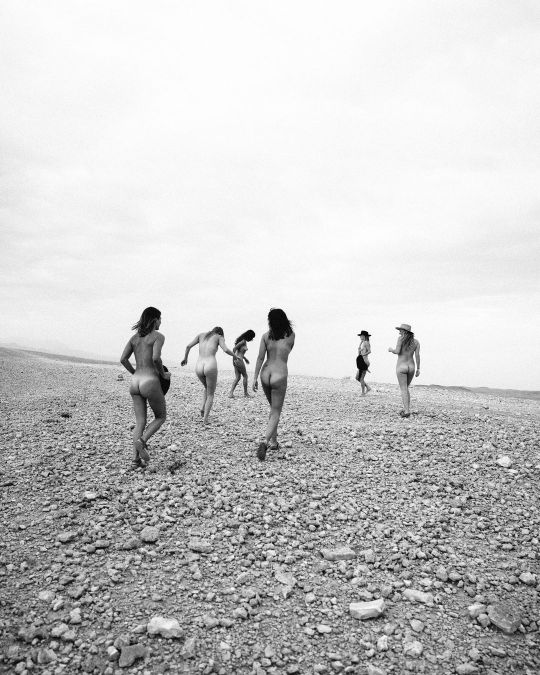
kat_reynolds
.
I’ve been thinking about the concept and importance of community. How invaluable deep and authentic connection is in this human experience. Particularly how we are evolving in the social sphere in relation to the evolution of our environment and how that is affecting the individual’s inner world.
.
According to Sebastian Junger “genetic adaptations take around 25,000 years to appear in humans, so the enormous changes that came with agriculture in the last 10,000 years have hardly begun to affect our gene pool” That means that mentally, we still operate in the same way that our hunter gatherer ancestors did.
.
We still crave time in nature and sun on our face, we crave physical touch, as well as emotional intimacy... we crave vulnerability - to connect to people on a soul level. We NEED to see, and be seen.
.
Its a balance, trying to keep up with the world spinning madly around us. Our basic needs for survival urges that we keep up. But more than ever, we are searching for things, people… that keep us grounded.
.
What are those things for you? Who are those people?
46 notes
·
View notes
Text
Sebastian Junger & Ken Harbaugh - “Against All Enemies” & Protecting Dem...
youtube
2 notes
·
View notes
Text
Kind of a reminder that there are way more important things out there than bitching about what Gwen is wearing or rather or not she is not in OK with Blake for his Birthday.
Reality check.
GLOBAL
'The Wars Keep Returning'
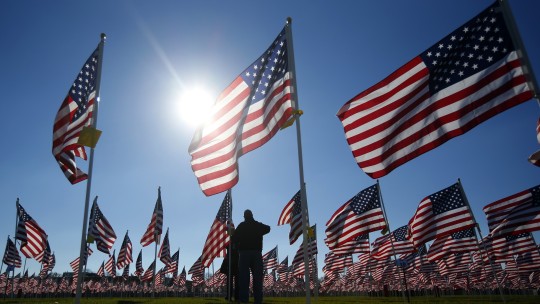
OCTOBER 7, 2016 SHARE
SAVED STORIES SAVE
I’ve been home from the wars for over three years now, after seven years of tours in Iraq and Afghanistan, primarily as a State Department political advisor to the Marines. Yet the wars keeps returning.
News of yet another suicide came to me last month. This time it was someone I knew who served in both Iraq and Afghanistan. Ivy League educated, and one of the quiet, effective ones. Yes, one of our best, who spent years in Iraq. I was not close to him, but we were in the same group that hung out together.
His suicide follows others of people I served with. One friend killed himself in Afghanistan following a bad phone call from home a little over a year ago. Another killed himself in Iraq’s Anbar province a few years before that. The Department of Veterans Affairs has estimated that in 2014 an average of 20 veterans committed suicide every day. But this latest acquaintance to die by his own hand had been a civilian government employee. Military or civilian, the only people I know personally who have committed suicide have served in combat zones. And there are too many.
RECOMMENDED READING
The High Price of WarMARINA KOREN
There’s a Perfect Number of Days to Work From Home, and It’s 2AMANDA MULL
Reiki Can’t Possibly Work. So Why Does It?JORDAN KISNER
I am trying to grapple with these deaths. In Iraq and Afghanistan one gets used to violent deaths. We are set up for it. We have ramp ceremonies where a thousand people might stand at attention while the coffins are brought into the plane for the final ride home. There are memorial services held at the base or at the embassy.
There are just tiny paid obituaries for those who served and then took their own lives, years later and thousands of miles away.
Yet he was a casualty of the war as well.
A friend writes: “In the past few months he [had] not liked where this world was headed. ... He was suffering from what we think was undiagnosed PTSD from his time in Iraq and more recently Afghanistan. He was only 41. Such a tragic loss. A bright young engaging man. ... There are times I struggle but I have people I can reach out to that I can talk to just to talk. That always helps. He apparently didn't have that outlet like so many others.”
I don't know why he killed himself. I can only speak from my own personal experience of the war. Serving in Iraq was terrifying, exhilarating, and the most professionally meaningful experience of my life. You're in an extremely high-pressure environment, “living in a goldfish bowl” as the saying goes, and you enjoy a tight sense of community. Then poof, war’s over and you’re flung into the diaspora, and life has little meaning anymore.
In the case of Iraq, so many of the Iraqis those of us Americans there came to know and trust, and who trusted us, paid with their lives for their association when ISIS took over large portions of the country, which we had left to its fate.
Almost all of the Sunni leadership that I befriended in Anbar province are either dead or have fled for their lives to other countries. Hunted down and marked for death as America’s former allies. So my time in Iraq, in retrospect, may well have been wasted, given Shia intransigence and hatred of the Sunnis, which continues on.
So unlike “good wars”—meaning wars that America wins—for me there’s no sense of accomplishment in looking back at the sacrifices in Iraq. Just desolation and sorrow for the deaths of good people. Bad policy got us into the Iraq war and bad policy led us to having to return there. It remains to be seen what will happen in Afghanistan.For many of those of us who served in Iraq and Afghanistan, our tours were defining moments in our lives.
The war reporter Sebastian Junger, in his book Tribe, deals with the issue of coming home. It resonates with a lot of us who were there, civilian or military:
Today’s veterans often come home to find that, although they’re willing to die for their country, they’re not sure how to live for it.
It’s hard to know how to live for a country that regularly tears itself apart along every possible ethnic and demographic boundary. The income gap between rich and poor continues to widen, many people live in racially segregated communities, ... and rampage shootings happen so regularly that they only remain in the news cycle for a day or two. To make matters worse, politicians accuse rivals of deliberately trying to harm their own country—a charge so destructive to group unity that most past societies would probably have just punished it as a form of treason. It’s complete madness, and the veterans know this. In combat, soldiers all but ignore differences of race, religion, and politics within their platoon. It's no wonder many of them get so depressed when they come home.
For many of those of us who served in Iraq and Afghanistan, our tours were defining moments in our lives. But returning home was a much more difficult challenge. War changes you. And it changes people in different ways. I knew a 19-year-old Marine so full of despair at the loss of a buddy that he beat his hand bloody hitting a wall. I’ve known a tough senior official, a civilian, who went “red” every day in Baghdad, meaning taking a convoy ride near the Shia slum of Sadr City, then arguably one of the most dangerous places in Iraq, day after day for more than a year. He returned seemingly sound, but sees a therapist and has done so for years. War damages you in ways you don't even realize: When I came home on my first R&R, my wife gave me the keys to the car and then asked why I was driving in the middle of the road. There are no IEDs on the Dulles Access Road. But it was just automatic.
I was lucky. I have friends and family I can talk with.
11 notes
·
View notes
Text





READING LIST FOR 2024

• [🎀] - priority • [✔] - finished • [👁] - now reading • [💭] - next up •
💌 Human Kind (Rutger Bregman) [👁]
🍒 Utopia for Realists (Rutger Bregman) [🎀]
💌 Joyful (Ingrid Fettel Lee) [🎀💭]
🍒 A Paradise Built in Hell (Rebecca Solnit)
💌 Tribe (Sebastian Junger)
🍒 The Art Of Frugal Hedonism (Annie Raser-Rowland, Adam Grubb) [🎀]
💌 Sapiens (Yuval Noah Harari)
🍒 Weird (Olga Khazan) [🎀]
💌 The Art of Thinking Clearly (Rolf Dobelli) [🎀]
🍒 Civilized To Death (Christopher Ryan) [🎀]
💌 The Courage To Be Disliked (Ichiro Kishimi, Fumitake Koga) [🎀]
🍒 The Courage To Be Happy (Ichiro Kishimi, Fumitake Koga) [🎀]
💌 The Practice of Not Thinking (Ryonosuke Koike)
🍒 This Is How You Heal (Brianna Wiest) [🎀]
💌 Authetic Happiness (Martin. E. P. Seligman)
🍒 Flourish (Martin. E. P. Seligman)
💌 How To Stop Feeling Like Shit (Andrea Owen) [🎀]
🍒 How To Be a Good Creature (Montgomery Sy)
💌 The Hope Circuit (Martin. E. P. Seligman)
🍒 Homo Deus (Yuval Noah Harari)
💌 Healing Is The New High (Vex King) [🎀]
🍒 Wintering (Katherine May)
💌 The Strength In Our Scars (Bianca Sparacino) [🎀]
🍒 Ego Is The Enemy (Ryan Holiday)
💌 The Mountain Is You (Brianna Wiest) [🎀]
🍒 Getting Through What You Can't Get Over (Anita Agers-Brooks)
💌 Cleaning Up Your Mental Mess (Dr. Caroline Leaf)
🍒 How To Be Your Own Therapist (Owen O'Kane) [🎀]
💌 Living Consciously (Yvette Ratshikhopha)
🍒 Adult Children Of Emotionally Immature Parents (Lindsay C. Gibson PsyD.) [🎀]
💌 Girl On Fire (Cara Alwill Leyba)
🍒 It's Not Fair (Melanie Dale)
💌 The Highly Sensitive Person (Elaine N. Aron PH.D.) [🎀]
🍒 Tiny Traumas (Dr. Meg Arroll)
💌 Be Not Afraid Of Love (Mimi Zhu)
🍒 The Book You Wish Your Parents Had Read (Philippa Perry) [🎀]
💌 The Art Of Noticing (Rob Walker)
🍒 The Child In You (Stefanie Stahl) [🎀]
💌 101 Essays That Will Change The Way You Think (Brianna Wiest)
🍒 The Pivot Year (Brianma Wiest) [🎀]
💌 How To Hug A Porcupine (Dr. Debbie Joffe Ellis) [🎀]
🍒 Why Simple Wins (Lisa Bodell)
💌 Don't Overthink It (Anne Bogel) [🎀]
🍒 Why Did Nobody Tell Me This Before (Dr. Julie Smith)
💌 Mother Hunger (Kelly McDaniel) [🎀]
🍒 The Art Of Self-Therapy (Nick Trenton) [🎀]
💌 A Witch's Guide To Crafting Your Practice (Lisa McSherry) [🎀]
🍒 A Gentle Reminder (Bianca Sparacino)

#bookblr#reading list#bookworm#2024#self-improvement#girl reading#bookblr 2024#reading list 2024#coquette#coquette girl#wonyoungism#pink academia#esther's booklist#trying to get back to reading#reading block#self improvement#self love#self care#self help
6 notes
·
View notes